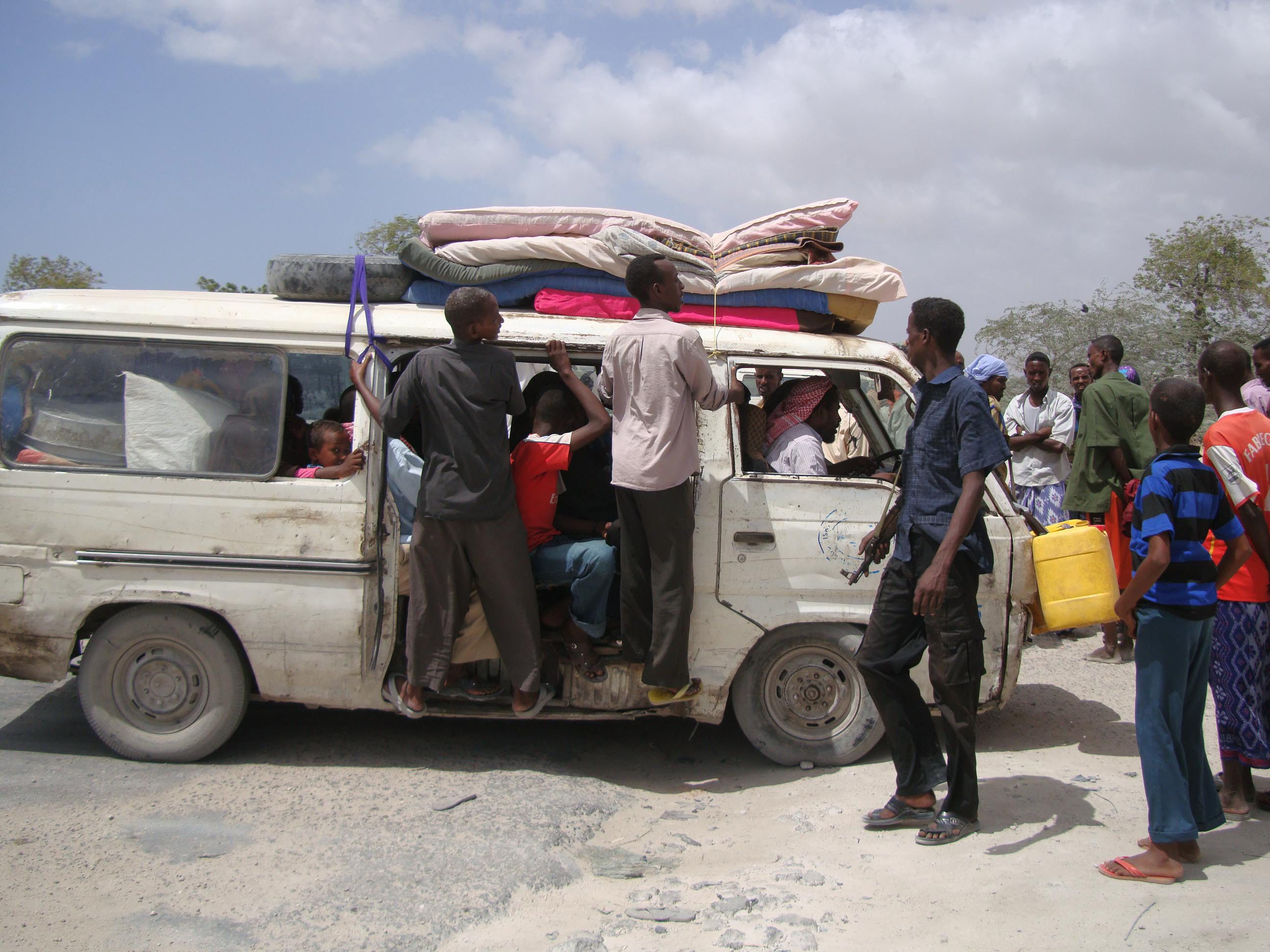Sweden intervenes to end stowaway saga
Sweden intervenes to end stowaway saga
GENEVA, May 1 (UNHCR) - The UN refugee agency warmly welcomed the news Wednesday that authorities in the Swedish port of Gothenburg had allowed two stowaway asylum seekers to leave a cargo ship and lodge an asylum claim. This was after they had apparently been prevented from disembarking in four other European Union countries.
The Swedish government's decision to allow the two young men, believed to be from Iraq, to enter the regular asylum procedure after the ship arrived in Gothenburg brought an end to a saga that began almost three weeks earlier, when the two men slipped on to the vessel in Cyprus.
"We're really pleased that Sweden resolutely assumed its responsibilities," said UNHCR spokesman Rupert Colville. "Once again, Sweden has shown an admirable commitment to important international principles that in some cases can be a matter of life and death. We don't know yet if these two people are actually refugees, and at one point it looked as though we never would."
On Tuesday, UNHCR said at a news briefing that it was concerned about the fate of the stowaways, who had started their journey on April 12 in Limassol, Cyprus, before moving on to Spain, Ireland, the United Kingdom and the Netherlands. According to the captain of the Panama-registered ship, they seemed to want to claim asylum, but were not allowed to disembark at any of these ports.
Even more seriously, UNHCR said, they did not appear to have had an opportunity to make their case for asylum. UNHCR was informed by the ship's insurers that it was boarded by immigration officers in both Spain and Ireland, but that their visits were very brief and could not possibly have included a thorough examination as to the circumstances of the men's flight from Iraq and reasons for seeking asylum. In the UK, according to the insurers, immigration officials did not interview the men in either of the two ports of Tilbury and Southampton, where the ship berthed.
The generally-accepted principle in such maritime cases is that stowaway asylum seekers should be allowed to disembark at the first port of call after the crew discovers their presence. They should then be given the opportunity to have their asylum claim determined by the relevant authorities.
However, if this turns out to be impossible for some reason or other, subsequent ports that the ship visits should be prepared to take initial responsibility, even if it is subsequently decided that the asylum seeker can or should be moved elsewhere.
If Sweden had not accepted the two stowaways, they could have continued drifting to Bremerhaven in Germany and Antwerp in Belgium before moving on to a number of ports in the Middle East and Asia, adding to a long list of "orbit cases."
"Orbit cases - some in ships, others in airports or even railway stations - can spend months or even years being bounced from country to country with no one prepared to hear their claim," said Colville.
"In the worst cases, involving people who are indeed refugees, they may have ended up being sent back to their country of origin where their lives or liberty might be at stake," he added.
Last week, the EU countries adopted an important directive governing minimum reception standards for asylum seekers. But without the possibility of access to the asylum procedure, agreements on reception standards become meaningless.





